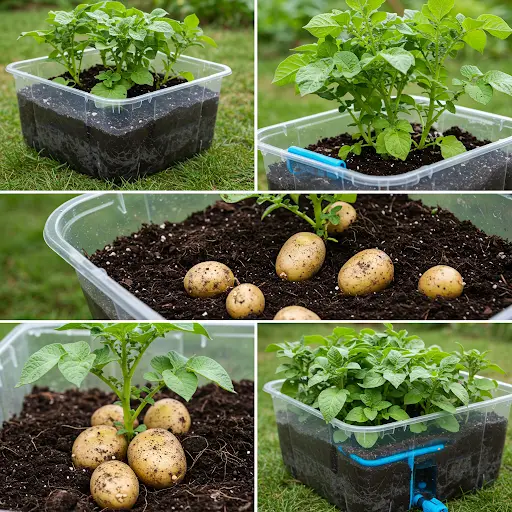Mid-Summer Organic Feeding with Aspirin: A Natural Boost for Vegetable Plants
Mid-summer marks a crucial time in the garden. As temperatures soar and the days stretch longer, vegetable plants are often pushed to their limits. To ensure that your vegetables continue to bear fruit throughout the season and stay strong despite the heat, now is the perfect time to support them with proper nutrients. Organic gardeners understand the importance of using natural methods to enhance plant health, and surprisingly, one of the most effective and accessible tools may already be in your medicine cabinet: aspirin.
Yes, aspirin—the same product used to relieve headaches in humans—can offer remarkable benefits for your vegetable plants. This simple remedy strengthens immunity, boosts root health, improves heat resistance, prevents leaf yellowing, and can even help plants recover from wilting caused by extreme temperatures.
Why Mid-Summer Feeding Matters
During the hot summer months, plants undergo stress from heat, dehydration, and nutrient depletion. The combination of high temperatures and active fruit production puts an incredible strain on a plant’s system. Without timely and effective feeding, plants can weaken, stop producing fruit, or even die off prematurely. This is why providing a nutrient boost during this period is essential.
While traditional organic fertilizers like compost, compost tea, or fish emulsion are excellent choices, integrating other supplements can further enhance results. Aspirin is one of those lesser-known garden helpers that has started to gain popularity among experienced gardeners.
How Aspirin Works in the Garden
Aspirin contains acetylsalicylic acid, which is derived from salicylic acid—a natural compound found in plants like willow trees. Salicylic acid plays an important role in plant defense mechanisms, helping plants respond to stress, disease, and physical damage. By introducing acetylsalicylic acid into the soil or through foliar feeding, gardeners can trigger a plant’s natural defense systems, thereby strengthening overall plant health.
Research has shown that aspirin treatment can improve a plant’s immune response, reduce fungal infections, and stimulate growth. It’s particularly useful for increasing a plant’s tolerance to heat and environmental stress, making it ideal for use in the hottest part of the growing season.
The Natural Supplement Recipe
Using aspirin in your garden is simple and safe when done correctly. Here’s how to prepare and apply the solution:
Ingredients:
-
1 effervescent tablet of aspirin (or a standard 325mg tablet)
-
10 liters of cold water
Instructions:
-
Dissolve the aspirin tablet fully in the water.
-
Allow the mixture to sit for 30 minutes.
-
Once the solution is ready, apply it to your vegetable plants by watering directly at the base.
-
For best results, water either early in the morning or in the evening when temperatures are cooler. Avoid using the solution during the heat of the day, as watering in full sun can damage plants and reduce the effectiveness of the treatment.
Application Frequency:
-
Use this solution once during the active growth and flowering stage of your plants.
Visible Benefits Within Days
Many gardeners who use this method report visible improvements within just a few days. Leaves regain their green vibrancy, wilting slows or reverses, and overall plant structure strengthens. Plants become more resilient to weather stress, and flowering continues without interruption.
This treatment is particularly effective for heat-sensitive plants like tomatoes, peppers, cucumbers, and squash. Not only does it help the plants survive the heat, but it can also lead to increased fruit set and yield.
Complementary Feeding and Care
It’s important to note that while aspirin is helpful, it is not a substitute for regular fertilization. It should be used alongside your usual organic fertilizing routine. Compost, manure, banana peels, coffee grounds, and other natural inputs still form the foundation of healthy, fertile soil.
Regular watering, mulching, pruning, and pest management should continue as part of your overall care strategy. Think of aspirin as a booster—something that gives your plants a little extra push when they need it most.
Final Thoughts
Organic gardening thrives on the balance between nature and nurture. By understanding plant needs and using simple, natural tools like aspirin at the right time, gardeners can dramatically improve the health and productivity of their crops. Mid-summer is a turning point in the growing season, and giving your vegetables this timely support may be just what they need to thrive through the heat and reward you with a bountiful harvest.
Try this method in your garden and watch your vegetables bounce back stronger, greener, and more resilient than ever.



